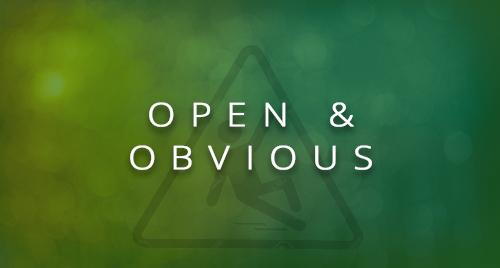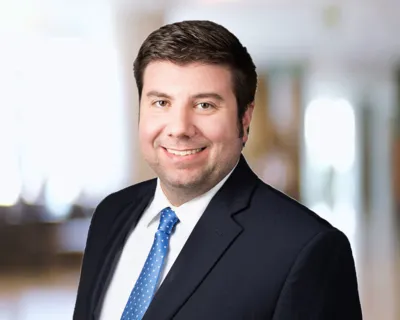
- posted: Jul. 31, 2023
- BRM Attorneys, BRM Shareholders, Personal Injury, Insurance Defense, Troy Michigan Defense Firm, Premises Liability Attorneys, Personal Injury Defense Attorneys, Possession and Control, Duty in MichiganPremises Liability Cases, Status on the Land
Open And Obvious Is For The Jury
On July 28, 2023, the Michigan Supreme Court ruled on the applications for leave filed in two invitee premises liability cases, Kandil-Elsayed v F&E Oil, Inc., and Pinsky v Kroger Co of Michigan.
In a 5-2 Opinion, the Michigan Supreme Court overruled Lugo v Ameritech Corp, 464 Mich 512 (2001), and found that the question of whether a hazard was open and obvious applies to the breach of the duty, not the question of whether a duty was owed. The result is that the open and obvious doctrine is no longer a defense to whether a duty existed in the first place. Instead, the open and obvious inquiry is shifted to the breach analysis and it is for the jury to decide how much fault to attribute to the defendant versus the plaintiff.
DECISION AND ORDER:
KANDIL-ELSAYED v F & E OIL, INC
PINSKY v KROGER CO OF MICH
The Court Rejects the Third Restatement of Torts
The Supreme Court did retain the traditional three (3) categories of individuals who enter the premises: invitee, licensee, and trespasser. The Court specifically rejected an argument to adopt the Third Restatement of Torts, at this time, and has instead recognized that the 2nd Restatement of Torts approach remains law in Michigan. This is important because the Third Restatement of Torts eliminates the invitee/licensee distinction.
These cases only dealt with plaintiffs who were invitees. “An ‘invitee’ is ‘a person who enters upon the land of another upon an invitation which carries with it an implied representation, assurance, or understanding that reasonable care has been used to prepare the premises, and make it safe for the invitee’s reception.’” Invitees are still entitled to the highest level of protection under premises liability law. Possessors of land owe a duty to “exercise reasonable care to protect the invitees from an unreasonable risk of harm caused by a dangerous condition of the land.” Whether a possessor of land owes a duty is for the court to decide as a matter of law.
The Court Rejects the special aspects analysis under Lugo
Under Lugo, the analysis of whether a hazard was open and obvious was examined in the context of duty. Specifically, if a hazard was open and obvious, there was no duty to warn of the hazard, absent special aspects. The Supreme Court recognized that analyzing whether a hazard was open and obvious in the duty context runs afoul of Michigan’s commitment to comparative negligence. The Supreme Court also specifically rejects the special aspects analysis under Lugo.
Status on the land
The Supreme Court in these combined cases held that the first question to be addressed in a premises liability context requires an analysis and determination of the person’s status on the land, whether an invitee, licensee, or trespasser. In the invitee context the duty is to exercise reasonable care to protect the invitee from an unreasonable risk of harm caused by a dangerous condition on the land. The open and obvious nature of a danger, “whether it is reasonable to expect that an average person with ordinary intelligence would have discovered it upon casual inspection” “is relevant to the defendant’s breach and the plaintiff’s comparative fault”. The Supreme Court reiterated the prior decisions of the Court that landowners are not insurers and are not charged with guaranteeing a person’s safety on the land. People who come on the land must still exercise common sense and prudent judgment when confronting hazards on the land. But, “by shifting the open and obvious danger doctrine to breach, it will allow the jury to do just what this Court – and the Legislature- intend: conduct a comparative analysis of each party’s fault.”
In the snow and ice context, the Supreme Court made certain to point out that the duty owed requires the landowner to take reasonable measures within reasonable time after an accumulation of ice and snow.
It is also important to recognize that this opinion only applies to invitee cases, it does not apply in the licensee context.
What does all of this mean?
The question to be answered is what does all of this mean? It means that, in the invitee context, open and obvious is no longer a defense that would grant summary disposition. We would expect that attorneys will be presenting a lot more claims and filing a lot more lawsuits for falls on commercial premises now that the open and obvious question is not a defense. Each case will have to be looked at on a case-by-case and fact specific basis.
This opinion does not alter any of the other defenses available in premises liability cases, such as the requirement that the defendant be in possession and control of the premises and the notice requirement. Those remain valid defenses and arguments to support a grant of summary disposition.
This does not mean that all cases for plaintiffs will be “winners”. Instead, the open and obvious nature of the hazard must still be considered but recognizing that the jury will be deciding whether the plaintiff should recover or how much fault to attribute to a plaintiff. Plaintiffs will be testing the water with these kinds of cases to see if juries will be receptive to plaintiffs who voluntarily encounter visible hazards.
The attorneys at Bowen, Radabaugh & Milton, P.C. offer a wide range of legal services to insurance carriers, and have the experience and knowledge necessary to advise on personal injury claims, including slip and fall accidents.
For more information about these changes, contact Joe Fazi by phone at 248.940.2528, or by email at [email protected]




